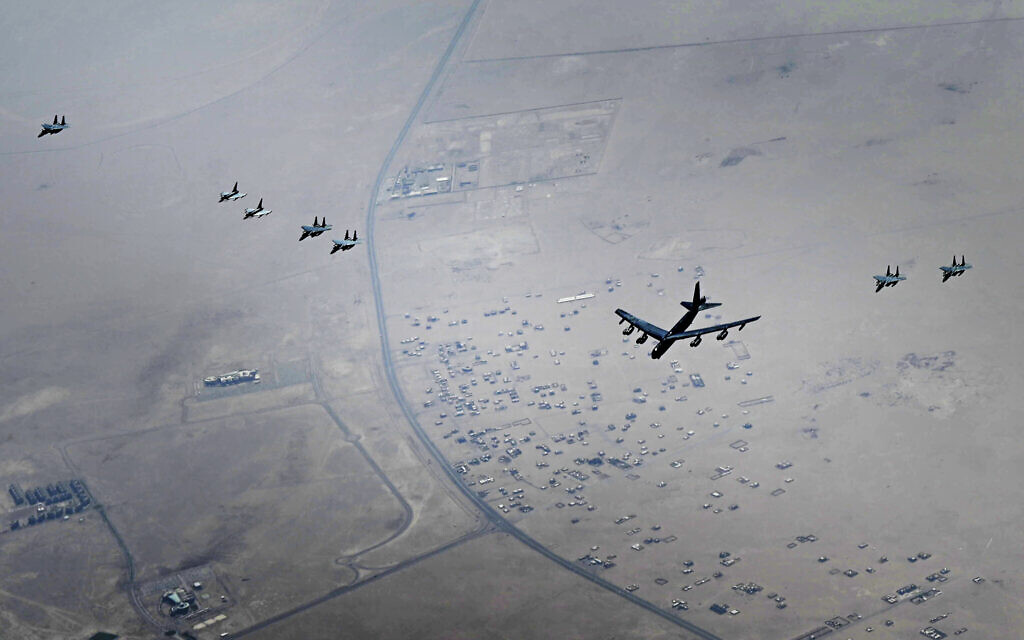MANAMA, Bahrain — The United States is reinforcing protection infrastructure in the Middle East, at a time of rigidity with Iran, a US official stated Sunday, including that Tehran had doubtless deserted a plan to assault Saudi Arabia due to safety cooperation.
Brett McGurk, the National Security Council coordinator for the Middle East and North Africa, advised the annual Manama Dialogue convention in Bahrain that his nation is concentrated on deterring “imminent threats” in the strategic energy-rich and conflict-ridden area.
“The United States is now actively building and enabling an integrated air and maritime defense architecture in this region,” stated McGurk, the highest White House official on the Middle East.
“Something long talked about is now being done, through innovative partnerships and new technologies,” he added with out elaborating.
On Saturday, the US Central Command chief General Michael Kurilla introduced throughout the identical convention {that a} US-led process drive will deploy greater than 100 unmanned vessels in the Gulf area’s strategic waters by subsequent yr to stave off maritime threats.
The bulletins got here after Israel and the United States blamed Iran for a drone strike off the coast of Oman final week that hit a tanker operated by an Israeli-owned agency.
Michael Kurilla, head of the United States Central Command (left), meets with IDF chief Aviv Kohavi on the Nevatim airbase in southern Israel, on November 15, 2022. (Israel Defense Forces)
The assault, which coincided with heightened tensions between Tehran and Washington, was the newest in a string of disruptions in Gulf waters which might be a significant route for world vitality provides.
McGurk stated the US forces have “exposed and deterred imminent threats” by Iran, confirming earlier reviews that the Islamic Republic was planning an assault in opposition to its regional rival Saudi Arabia.
“That attack likely did not emerge because of the close security cooperation between Saudi Arabia and the United States, which is ongoing and continuous,” he defined.
Speaking on the identical session, the Israeli National Security Adviser Eyal Hulata described Iran as Israel’s “most prominent security threat.”
Israel has lobbied the United States and major European powers to abandon makes an attempt to renew a 2015 cope with Tehran over its nuclear program.
Negotiations over that deal have stalled.

In this photograph offered by the US Air Force, evacuees wait below the wing of C-17 Globemaster lll after arriving in an undisclosed location in the Middle East area on Friday, Aug. 20, 2021. (Airman 1st Class Kylie Barrow, US Air Force through AP)
“Enough with futile talks in Vienna,” stated Hulata, including that “even the people of Iran are saying enough” because the regime embarks “on a brutal crackdown against its own people.”
He was referring to the 2 months of nationwide protests which have turn into the largest problem to Iran’s clerical regime because the nation’s 1979 Islamic Revolution.







